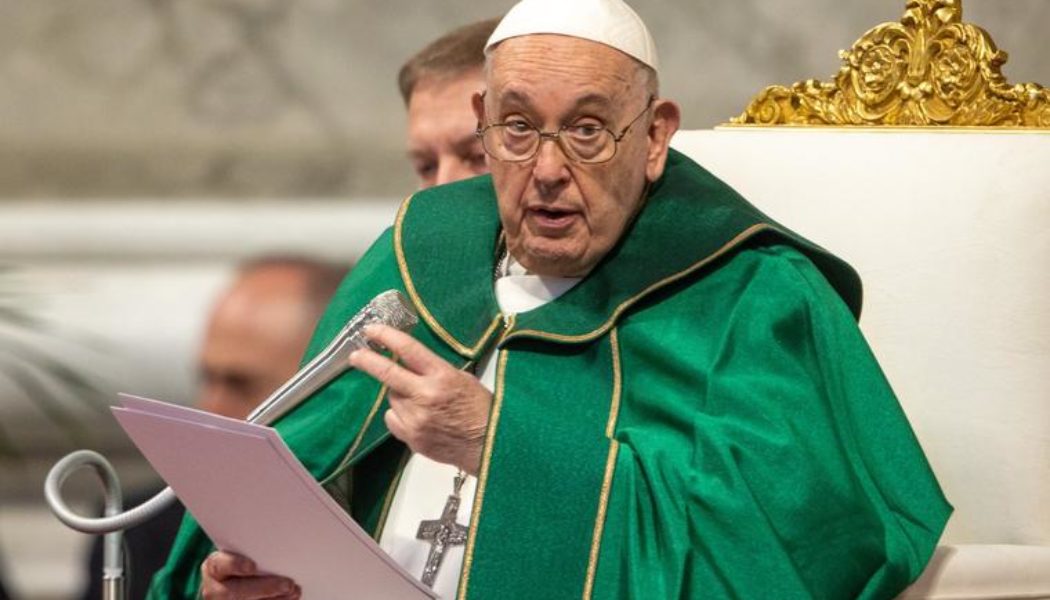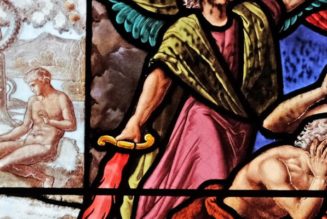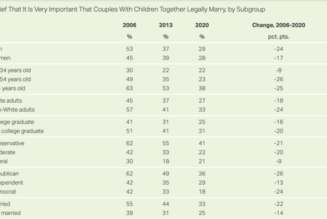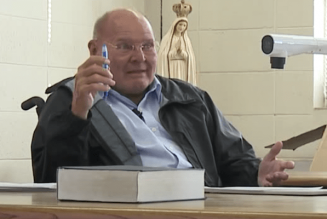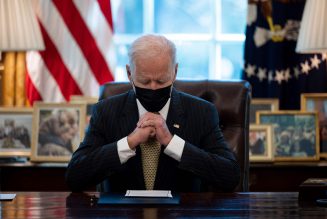
COMMENTARY: It is hard not to read ‘Ad Theologiam Promovendam’ as a doubling down on the kind of theology that emerged at the Synod on Synodality.
The latest motu proprio from Pope Francis, Ad Theologiam Promovendam, articulates the vision of the Pope for the reform of modern Catholic theology. Directed specifically at the Pontifical Academy of Theology, the Nov. 1 document nevertheless has significance for the broader development of theology within the Church at large. Therefore, it deserves to be analyzed for what it seems to be advocating.
I say “seems” because the document is rather short and is sparse in specific details or definitional clarity. Therefore, it requires us to read between the lines a bit to get a sense of what it is really saying. This further requires us to put the document in the context of the overall history of modern Catholic theology. Motu proprios are written for a reason and are not idle exercises in papal chitchat, and so it is thoroughly legitimate to ask what it is about the status of modern Catholic theology that concerns the Pope and what it is he is offering as a proposal for change.
And when one puts this text in its theological context, there are reasons to be concerned. On the surface, there appears to be nothing special going on. The Pope admonishes theologians that, given the era of cultural revolution in which we now live, theology can no longer merely repeat the “abstract formulas” of the past. There can be no going back to the days of theology engaging in lifeless and overly rationalistic deductive methods that begin with the truths of Revelation and then work their way down to concrete conclusions. Rather, theology must work inductively and begin with the concrete experiences of believers and even nonbelievers and then work its way upward toward Revelation, to view it in a new and more creative light. The Pope goes on to conclude that theology must therefore be “contextual” and take into account the variety of the world’s cultures since the movement of the Holy Spirit is not confined to European-derived cultures or even to the Church herself and finds a way to speak via the differing cultures of the world.
This all sounds perfectly fine, with only a few caveats, and even rather boilerplate. However, several troubling things arise on closer inspection. First, the text’s description of the theology it is seeking to correct — with its “abstractions” and “repetitious formulas” — is an extremely superficial strawman caricature. The vast majority of mainstream theologians have not been deductive and abstract, nor have they merely been repeating the formulas of the past.
In fact, the past century has witnessed a veritable explosion of creative Catholic theologies that have taken into account the cultural revolution in which we live as well as the lived experience of modern believers and nonbelievers. Only someone who is completely ignorant of the landscape of Catholic theology over the past 100 years could make the claim that the theological guild has been standing pat and sitting on its hands, content to merely repeat stale formulas from the past. I cannot emphasize this point strongly enough. The claim that modern theology is abstract, deductive and does not take experience into account is false to the point of being absurd.
But why the strawman caricature? Surely whoever wrote this text knows that it is false. Therefore, perhaps it serves some rhetorical purpose that is useful for making the document’s main point by way of contrast. And perhaps that rhetorical purpose is to emphasize that even if theologians have been doing these things, they have not been doing so correctly or sufficiently and, despite their best efforts, really are still too abstract and deductive.
Here, it is instructive to look at the modern theological pedigree of “theologies of experience” grounded in a radically inductive method. If you read the document through the lens of current theological debates, it would appear that it is privileging the long-sought-after dream of progressive theologians: to do theology within the framework of a kind of populist understanding of the sensus fidelium, with a grounding in a theology of grace that conflates the concrete experience of “average people” with the movement of the Holy Spirit. There is very little emphasis in such an approach on the “testing of the spirits” against the backdrop of doctrine and Tradition, since these are deemed to be “abstractions” and superstructures of alienation that distort lived experience by forcing it through allegedly rigid ecclesial ideological filters.
This explains why the text, despite all evidence to the contrary, implies that contemporary theology is still too deductive and abstract. And that is because the Pope seems to think that this theology is still too wedded to a model that begins with the truths of Revelation and works its way downward. What the Pope seems to want instead is for theology to move strongly in the direction of a more robust theology of subjective experience and that, as in progressive theology, one reinterprets Revelation from bottom to top in the light of these experiences. This could explain why the Pope says that a “paradigm shift” in theology is needed.
Of course, it could also be the case that the Pope wants all of modern theology, progressive theology included, to move to a new paradigm. But this motu proprio was not issued in a vacuum and must be read in light of the entirety of the Francis papacy. And when we look at some of the episcopal appointments he has made and those bishops he has elevated to the rank of cardinal over the past 10 years, we see a pattern emerge of a preference for some prelates who are calling for the exact kind of theology of experience outlined above.
It is also no accident that the motu proprio was issued only a few days after the conclusion of the recent Synod on Synodality held in Rome. The Pope put Cardinal Jean-Claude Hollerich of Luxembourg in charge of the synod. He is on record as one who dissents from established magisterial teaching on homosexuality. He is a progressive theologian in almost all ways, and, therefore, it is telling that the Pope gave him the job of shepherding the synod’s work.
And when one looks at the statements from leading prelates at the synod on what the whole affair was about, you see constant references to “listening to the people of God” and of the need to see the Holy Spirit at work in the populist opinions on hot-button issues of “everyone” without much emphasis upon the need to discern which opinions are in line with the Holy Spirit and which ones are in line with the spirit of the age. There were few references to Christ, the universal call to holiness, redemption, the sacraments and the moral teachings of the Church. Instead, we saw a superficial sociological approach that employed all of the standard buzzwords of secular liberal culture.
Therefore, it is hard not to read the new motu proprio, with its emphasis upon theologies of experience, as a doubling down on the kind of theology, if you can even call it theology, that emerged at the synod. However, the problem with all such theologies is that the experiential tail almost always ends up wagging the Christological dog. And before long, Revelation is gutted of its objective truth content and the fundamentals of the Church’s gospel are eviscerated and replaced with the stale bromides of secular modernity.
Liberal Protestantism has already gone down this path, with disastrous results. Let’s not make the same mistake.
